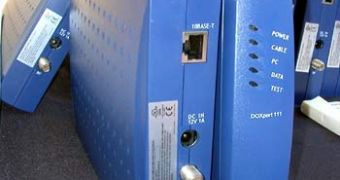Comcast has just introduced its new extreme high-speed Internet tier, that is rated at data transfer rates of 50 Mbps for download and 5 Mb/s for upload. The company promised to offer high-speed Internet-over-Cable since late last year, when it talked about the new surfing speeds offered by the DOCSIS 3.0-compliant cable modems.
Currently, the company can only offer the service in the Minneapolis/St. Paul metropolitan area, but it plans on extending its services during the following months. However, in order to take advantage of the dazzling speeds, regular users have to pay $149.95 per month, while companies and businesses will invest about $199.95.
According to the company's spokesperson Charlie Douglas, the pricing is "competitive" and is closely situated to Verizon's FiOS offerings.
"This announcement marks the beginning of the evolution from broadband to wideband," said Comcast High-Speed Internet senior vice-president Mitch Bowling. "We believe wideband will usher-in a new era of speed and Internet innovation for today's digital consumers. Wideband is the future, and it's coming fast."
Douglas also claims that Comcast will be able to make the new DOCSIS 3.0-based Internet service available to 20 percent of its customers until 2009, while the rest of the country will get its high-speed access until mid-2010. Speeds will also increase, as the DOCSIS 3.0 standard can support up to 160 Mbps network speeds.
Comcast will also make amendments on the company's traffic policy, since it has been the subject of Federal Communications Commission's investigations.
"We're committed to changing our network management process from what they are today by the end of the year, and we just need time to work that all out," Douglas said. "We're going to work not just with BitTorrent, but a lot of other P2P companies, the Internet Engineering Task Force, academics, and others to get together and come up with a better way to manage the network," Douglas concluded.

 14 DAY TRIAL //
14 DAY TRIAL //